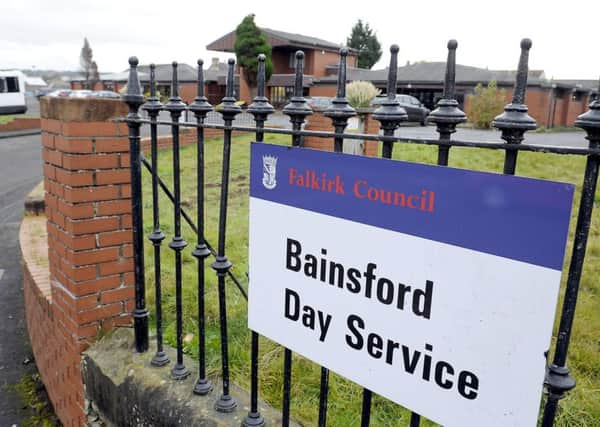Falkirk's future in care '“ helping people to help themselves


These old ideas have now been flipped on their head with the introduction of initiatives like self-directed support and Falkirk’s Integration Joint Board (IJB) taking over the operational responsibility for Falkirk Council’s adult social care services back in 2016.
The idea behind self-directed support is giving service users more choice and flexibility in what support they actually get from adult social care. It is designed to help people live more independently — even giving them a cash payment for care and allowing them to choose how it is spent.
Advertisement
Hide AdAdvertisement
Hide AdThe IJB is responsible for overseeing the planning, management and delivery of relevant health and social care services and aims to put people first and ensure it tailors services to meet their individual needs.
Julia Swan, chairperson of Falkirk IJB, said: “People with learning difficulties have traditionally not had choices. It’s about supporting service users, giving them confidence and allowing them to try different things out in the community for longer periods of time.
“Instead of coming into the day centre in the morning they can maybe start the day off at the person’s house and still use our day centre facilities on a drop-in basis.
“We are supporting people to meet up in their own social network and take control of their own care.”
Advertisement
Hide AdAdvertisement
Hide AdIn the last year adult social care has been consulting with scores of service users to find out about their own specific needs and concerns.
Nikki Harvey, service manager, said: “We had meetings with the service users and no two were the same. We have found in some cases people don’t want to come in to places like day centres and use our in-house provision – they want to go out and use what is available in the community.
“We don’t need to have four day service centres open anymore and we have seen Camelon close already and Bainsford will be closing later in the year. We will still have Grangemouth Dundas and Oswald Avenue for those who require day centres.
“While some people like that kind of care, some don’t see why they should go to a building and be institutionalised. Younger people want to have long lies in bed and don’t necessarily want to socialise with other people with disabilities.
Advertisement
Hide AdAdvertisement
Hide Ad“We are now encouraging people to manage their own budget to manage their own care. The social worker will always be there to help, but it’s more about empowering the individual so they can make these choices for themselves.
“People may want to have a break – go abroad or hire a cottage somewhere – and we have to offer opportunities and advice to people who may want to do that. For people who have always been picked up by our transport, we are now seeing how they might use public transport instead.
“The modernisation of our service will not stop, it will continue to evolve and develop and we are now working closely with schools for instance. We don’t have a blueprint – it’s not one size fits all, it’s about what the individual wants.”
The council has now teamed up with the Dates ‘n’ Mates initiative to increase socialising opportunities for its service users.
Advertisement
Hide AdAdvertisement
Hide AdNikki added: “We have been supporting people to go out to pubs and with Dates ‘n’ Mates they are sent out up to eight suggestions of where they can go – maybe the theatre or a comedy show.
“When they are there they meet people whose path they might never have crossed and maybe a relationship will be developed. Dates ‘n’ Mates also have open events throughout the year in Glasgow.”